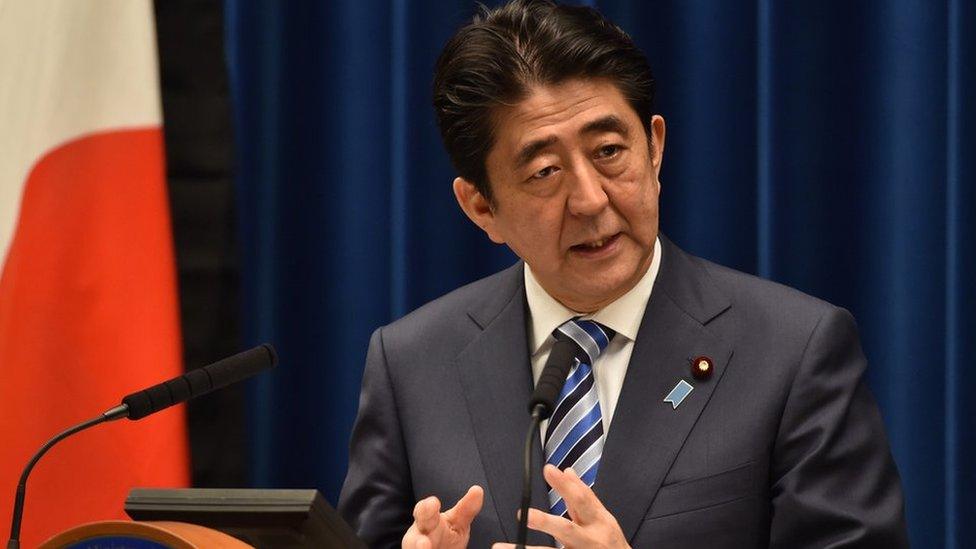China v Japan: Who is at fault?
- Published
- comments
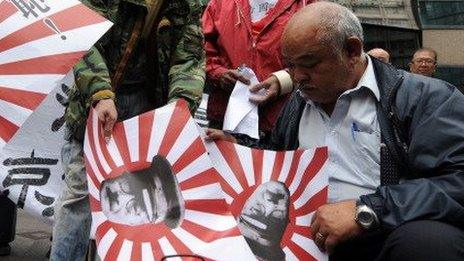
World War II atrocities still cast a long shadow over Sino-Japanese relations
The growing tension between Japan and China have been put on stark display over the past week, with Japanese Prime Minister Shinzo Abe's visits to World War II memorial shrines and China's resulting forceful condemnations. (You can read summaries by BBC Monitoring of Chinese media reaction here and here.)
Everyone seems to agree that rising nationalist tendencies are to blame. But who is the instigator, China or Japan?
The dispute has everything to do with Japanese nationalism, according to, external the National Interest's Jacob Heilbrunn.
"The surprising thing is not that Japan is trying to revive patriotism," he writes. "It is that it did not happen sooner."
The danger, however, is that Japanese nationalism is still intrinsically tied with its World War Two past. Japan, he contends, has been unable to come to terms with its war crimes the way Germany has.
In Germany, he writes, "genuine contrition and repentance have been absorbed into the DNA of German democracy. Japan is different."
Why? "The borders in Europe are settled. Not so in Asia. China is flexing its nascent naval muscles. Japan is figuring out how to respond. North Korea remains a bellicose foe, both for Japan and South Korea."
"Tokyo would do better to focus on how it can counter China's growing might," he concludes. "Indulging in nationalism is a frivolous luxury that will not accomplish that goal."
The editors of the Australian echo these concerns, warning that Mr Abe's shrine visit is increasing tensions with his country's regional allies.
"By, in effect, thumbing his nose at Beijing and Seoul, as well as Washington, Mr Abe has made things more difficult for friends and allies like Australia that have gone out on a limb to support him in the confrontation over the disputed Senkaku/Diaoyu islands," they write, external.
For now, writes the BBC's Rupert Wingfield-Hayes, Mr Abe seems to be playing the "tough guy" to a domestic audience in order to advance his goal of reforming Japan's "peace constitution".
"Like many on the right here, Mr Abe believes that constitution was forced on Japan by America and is a humiliation," he writes. "It imposes not only pacifism, but also Western notions of human rights and civil liberties. It rejects Japan's uniqueness in favour of 'universal values'."
By provoking a crisis with "big and frightening China", our correspondent writes, Mr Abe may be trying to create a crisis that helps him accomplish his reform goals.
Professor Kishore Mahbubani of Singapore's National University writes, external that the roots of the dispute date back to September 2012, when Japan purchased several islands contested by China.
He writes that there is a clear way to ease tensions in the region: Japan should sell the disputed islands back to private parties (though it could still retain its territorial claims). In return, China should scale back its aggressive military patrols in the contested region.
Military historian Edward Luttwak sees, external 2008 as the turning point in Chinese-Japanese relations, and he pins the blame on China:
Interpreting the global financial crisis as a harbinger of collapsing American power, Beijing abruptly revived its long-dormant claim to most of the Indian state of Arunachal Pradesh, rebuffed friendly overtures from Japanese politicians and instead demanded the Senkakus, and declared ownership of vast portions of the South China Sea hundreds of miles from any Chinese coast but well within the exclusive economic zones of the Philippines, Brunei, Malaysia, Indonesia and Vietnam.
Luttwak also cites Germany as an important reference point. For him, however, it's pre-World War One Germany that's relevant, and China is the nation in question.
"Unfortunately, the actual evidence so far is that we are witnessing a prolonged outbreak of feckless nationalism and militarism that evokes the sinister precedent of pre-1914 Germany," he writes. "This was a country that had the world's best universities, the most advanced industries and the strongest banks. It lacked only the strategic wisdom of persisting in its own 'peaceful rise'."
According to the New York Post's Benny Avni, both sides are to blame.
"Japan is experiencing a revival of long-dormant nationalist emotions just as China is moving to translate its economic rise to military pressure across the region," he writes, external. "The clashing nationalistic trends feed each other."
Luttwak warns that the Chinese military has a tendency to act recklessly, which could make a potential "mistake" that leads to a crisis more likely.
"It was different during the Cold War," he writes. "Soviet officers knew that 'adventurism' was a career-ending offense. Yet in the Chinese case, Communist Party leaders apparently encourage it."
For now, both Japan and China seem to have domestic reasons for continuing bellicosity in the region. The danger, however, is that a war of words could turn into a war of more than words.
- Published14 March 2013
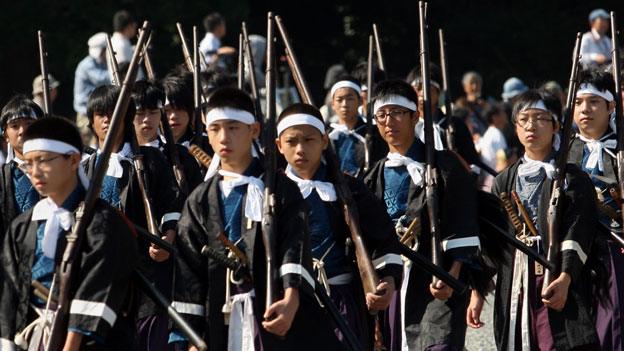
- Published10 November 2014
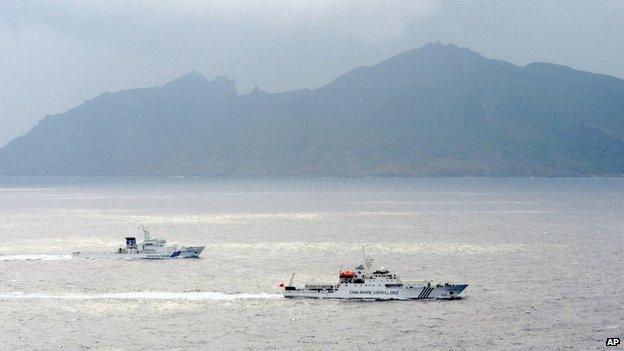
- Published29 May 2013
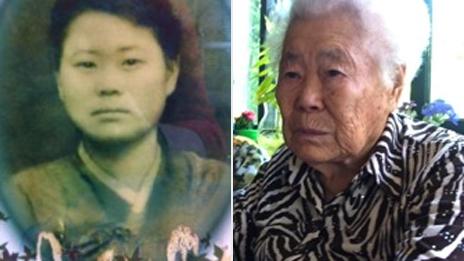
- Published23 October 2017
